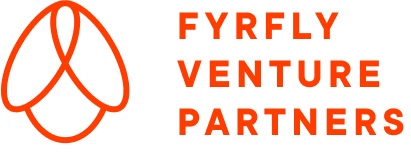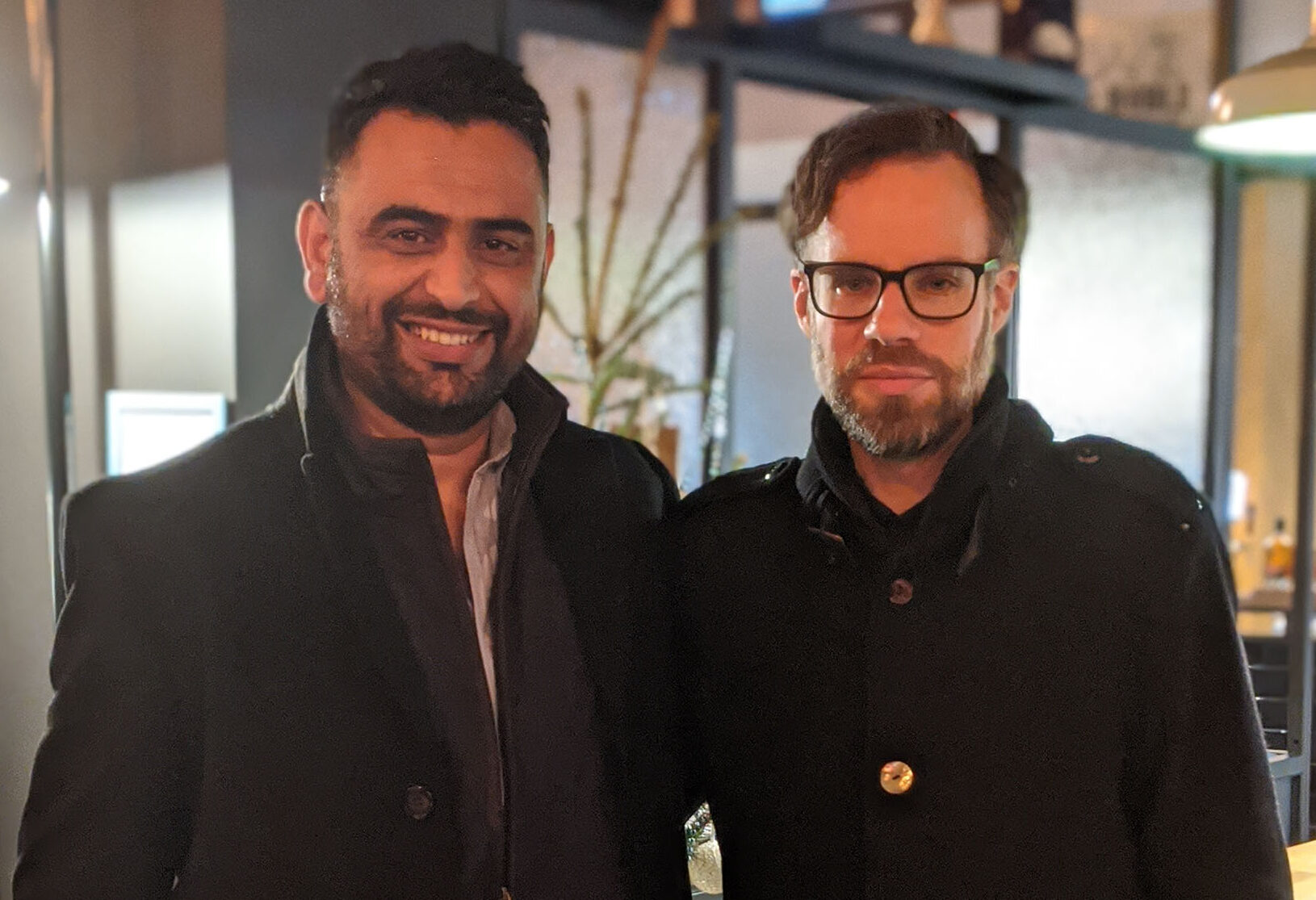The existence of Rosalyn.ai, an AI proctoring platform for educators and certifiers, is extremely improbable in retrospect. Co-founders Noor Akbari, survivor of three wars in Afghanistan, and Martin Jakobsson, a Swedish computer vision engineer, met online but bonded over a mission to democratize education.
Rosalyn.ai is an anomaly. Truly, it’s hard to imagine two co-founders with lower odds of meeting let alone founding a company that develops AI proctoring technology to make education available to everyone, everywhere.
One founder’s journey began in Kabul, Afghanistan in 1985 when Noor Akbari was born. The Soviet Union’s decade-long invasion would end in 1989 after claiming the lives of more than one million civilians. Civil war broke out soon after. “From the beginning, it was always about survival. That was the priority of our family,” recalls Noor.
Entrepreneurship was a key to survival. Noor’s mother figured out how to arbitrage aid supplies from the United Nations. The UN gave each refugee family the same amount of cooking oil, irrespective of the household size. So, the Akbaris bought surplus oil from small families and sold it to big families.
Once the Taliban took control of Kabul in 1996, there was less bloodshed but even less freedom. Some of Noor’s friends secretly bought Taiwanese VCRs, smuggled into the country. Bored, Noor wanted a VCR too, but it was too much of a risk to his parents and four siblings. His mother insisted that Noor get a computer instead, convinced by her nephew, a UN employee, that computing was the future.

Noor’s first computer had a 1 GB hard disk and ran Windows 1995. Shortly after the U.S. Armed Forces booted the Taliban from Kabul in 2001, Noor launched a digital printing press to challenge calligraphers. He produced newspapers, magazines, and marketing materials using Microsoft PowerPoint. Soon after selling this press to a government-backed enterprise, Noor served the U.S. military as a translator and cultural advisor, earning a special immigration visa to live in the U.S. In 2007, he relocated first to Nebraska and later to Columbus, Ohio and worked as head of testing for Mission Essential, a defense contractor known for sourcing and vetting linguists.
Martin Jakobsson, born in 1982, says his background is “boring” in comparison to Noor’s, and that he was “born with a silver spoon.” His mother, a pediatrician, and father, a serial entrepreneur, raised Martin and his younger twin sisters in the beautiful countryside of southern Sweden.
Martin was fascinated with technology—partly out of need. In sparsely populated rural Sweden, getting together with friends wasn’t easy. So, Martin spent a lot of time alone with computers. Soon after inheriting his father’s old IBM 8286 at age seven, he taught himself to code with Borland’s Turbo Pascal system and became a “hacker” (in the non-criminal sense).
That dedication to computing eventually landed Martin at Lund University for his undergraduate and master’s degrees (which included a stint at the University of Illinois Urbana-Champaign). In 2005, before even completing his Master’s in computer science and engineering, Martin was recruited to join Lund-based Scalado, a startup focused on image processing for mobile phones.
Scalado was acquired by Nokia in 2012, which was acquired by Microsoft in 2013. Two years at multinational tech companies were enough of corporate life for Martin. In February 2014, he became an independent software consultant. Though not for long.
In 2012, Noor was onto building his second U.S.-based company, Invedyn. It began when Noor pitched Mission Essential on a way to save money on language testing. At the time, the organization flew thousands of candidates annually to physical locations for human-proctored tests. Noor launched Invedyn to offer proctoring over video conferences—and landed its first contract with Mission Essential. Although Invedyn saved Mission Essential tons of money, scheduling tests remained a hassle. What if Invedyn could run tests asynchronously to reduce talent costs?
Invedyn started recording videos of testers and passed them to proctors for review. It occurred to Noor that online universities might need solutions like this, too. “If I’m in Afghanistan, and I want to go to university online, one of the challenges has got to be exams,” explains Noor. “How do you trust someone who’s taking the exam?” And how do you provide an exam that will work on any device, whether it’s a cheap smartphone in rural Afghanistan or laptop connected to fiber-optic WiFi in Europe?
Noor noticed that box stores were beginning to use computer vision and AI to detect stealing. Perhaps that tech could be adapted to proctoring. To create it, though, Noor needed an expert consultant—a “magician,” as he puts it.
Noor found his magician on LinkedIn in 2016. His name: Martin Jakobsson.
“I’m pretty sure I rejected you at first,” says Martin to Noor over our video call (he did). Yet something about Martin convinced Noor not to give up. Compared to other candidates, Martin seemed to be far more understated and honest. He had quiet confidence.With Martin’s track record, he could have chosen any project to work on, but after enough nudging, he chose Noor’s. “I love interesting engineering challenges,” says Martin, “but you can get that in many places. The difference with Rosalyn is its mission of democratizing education across the world, whether you live far away from testing centers, or have five kids [like Noor] and need to test in the middle of the night.”
Keenly aware of his privilege growing up, Martin also felt a degree of guilt, which, he says, “brought on the will to change things.”
For a year and a half, Martin consulted for Noor, during which time they built mutual trust. Noor began to realize that if their AI proctoring technology was going to become a full-fledged venture, he needed a co-founder and CTO, not a consultant. Who better than Martin?
It was not an easy decision for Noor. At the time, Invedyn had lots of revenue. To substitute that with a bigger goal—and to give Martin co-ownership in a technology that could have belonged entirely to Invedyn—was risky. Noor’s willingness to sacrifice short-term profit for a longer-term mission was a testament to their rapport. Martin gave up contracting to co-found Rosalyn.ai, named for Rosalind Franklin, the British chemist who helped discover the double-helix structure of DNA but was overlooked by the Nobel Prize committee, which recognized her colleagues instead.
They landed a spot in San Francisco’s Alchemist Accelerator, where Martin and Noor met in person for the first time in 2017. Following Alchemist, they went on a fundraising roadshow, traveling from Airbnb to Airbnb together. They managed to raise angel funding, but after some 140 pitches, they were struggling to convince seed investors. Which is when they met Julie Maples at FYRFLY Venture Partners.
Something clicked in their pitch to Julie, recalls Noor. Within a few weeks, they had FYRFLY’s term sheet. FYRFLY led the seed round with Brighteye participating.
“Julie came across as genuine and caring, not venture capitalist-ish,” says Noor.
Martin, more cynical in general and especially towards VCs, wanted FYRFLY to deliver value beyond funding. “It was definitely something we would never have to regret,” as Rosalyn’s chief technologist puts it.
Julie effectively became part of the team, assisting with business development and advising the co-founders regularly. It was “…beyond what a typical VC would do,” insists Noor.
“Through Rosalyn’s ups and downs, she’s been very supportive,” says Martin. Whereas many VCs add pressure and fear in tough situations, Julie seemed to provide positive encouragement and constructive feedback. “She has always believed in our future, and that instills confidence in us,” he adds.
In 2020, the COVID-19 pandemic forced education to go remote. Yet it wasn’t the inflection point for AI proctoring.
Educators scrambled to adopt remote AI proctoring solutions, which were thrown together quickly by existing edtech companies. That provoked a massive backlash from students who found that everyday behaviors—coughing, sneezing, looking down or up, wearing a headscarf—triggered the AI to flag them for cheating. Students of color were disproportionately accused of cheating by AIs trained on non-diverse populations.
Despite offering turnkey AI proctoring with respect for privacy and human diversity—and with a human in the loop to make consequential decisions—Rosalyn was fighting an uphill battle against public sentiment.
Then ChatGPT arrived in November 2022. It made cheating very, very easy, renewing concerns about academic integrity. It also reintroduced AI as a credible technology. Educators and students accepted that, despite the proctoring kerfuffle in 2020 and 2021, AI was the future. Rosalyn reasserted itself in the market.
Today, Rosalyn.ai has raised $5M in funding and serves a range of clients including the U.S. Department of Defense, online education platform Coursera, the tech company Red Hat, and traditional academic institutions like Dominican University and Missouri Baptist University. With an AI trained on over a half million exams and diverse test takers, Rosalyn has overcome the many biases that soured students on AI proctoring during COVID-19.
Noor and Martin have had a strong, trusting relationship throughout their journey. They demonstrate why as we wrap up our conversation. Noor emphasizes how important it is for startups to get things “right” early on, when small decisions have an outsized effect on the future.
Martin takes the counterpoint that mistakes are inevitable. “The most important quality to have in a founding team is the ability to recover from mistakes,” says Martin. “Being able to mentally overcome and try again, even when things are dire, brings confidence because the next time you face that, you know that a comeback is possible.” Noor acknowledges the wisdom of his counterpoint. They clearly disagree to learn and improve, not to be right.
Perhaps the quality of their rapport is not just about compatibility and healthy dialogue, but gratitude. The way they found each other—coming from the most opposite backgrounds imaginable—brings with it a realization that their present defies immense odds. For Rosalyn.ai to be where it is today, Noor and Martin had to be and do the unexpected.

